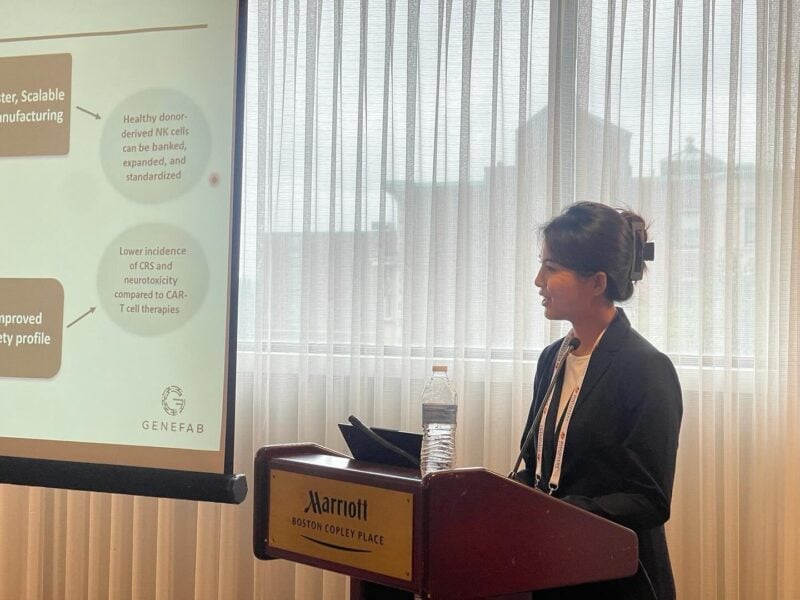As a first-generation Korean-American scientist, Hee Jin Kim has carved a path that blends scientific rigor with personal purpose. A dedicated immunology researcher and cell therapy professional, she has made significant contributions to advancing therapies in both oncology and autoimmune disease. Her work spans research at City of Hope, one of the nation’s leading cancer institutes, as well as efforts in autoimmune-focused cell therapies and B-cell therapies targeting conditions such as multiple sclerosis, arthritis, lupus, and scleroderma.
Kim’s journey has been defined by resilience and determination, overcoming cultural and professional barriers to achieve success.
“I became involved in biotechnology because I wanted a career where I could both challenge myself and make a real impact. As the first in my family to graduate from college and build a professional career in the U.S., I felt strongly about pursuing a path that not only pushed me forward but also opened doors for others who might come after me,” Kim says.

A Love of People and Science
From an early age, Kim combined her deep curiosity about science with a desire to help others. She began volunteering at UCLA’s pediatric hospital, where she witnessed the struggles of children battling leukemia. Later, she gained firsthand experience in the emergency room at Olympia Medical Center and with long-term cancer patients. These encounters inspired her decision to study biology at the University of California, San Diego, setting her on a course toward immunology and biotechnology.
“I’ve combined personal motivation, scientific curiosity, and real-world impact,” Kim says, “moving from bedside encounters as a volunteer to research and development at the cutting edge of biotechnology.”
A Personal Investment in Science
Today, Kim works at GeneFab LLC in Alameda, California, where she plays a key role in developing scalable cell therapy platforms designed to accelerate patient access to high-quality treatments.
Her professional mission is deeply personal. Both her mother and grandmother suffer from rheumatoid arthritis, giving her an intimate understanding of the toll autoimmune diseases can take. This perspective fuels her determination to improve patient outcomes through the development of better therapies.
“Biotech research gave me the opportunity to combine curiosity, problem-solving, and innovation with the chance to create something that could truly change lives,” Kim says.
Resilience and Discovery as a Female Biotech Leader
Kim’s path has not been without obstacles. As the first in her family to navigate higher education and a career in science, she lacked a roadmap and often had to chart her own course.
“At times it felt overwhelming to figure out each next step on my own, especially in such a competitive and fast-moving field,” Kim admits.
Over time, she built a network of peers and colleagues, connected with mentors, and asked many questions in pursuit of gaining knowledge. She learned to trust her instincts and make hard decisions.
She also learned the power of being resilient, especially when experiments sometimes didn’t go as hoped. These “setbacks,” Kim discovered, often led to new insights and a different approach.
One of Kim’s major accomplishments involved advancing scientific projects to help combat T-cell lymphoma.
“I completed both in vitro and in vivo experiments that demonstrated the potential of genetically modified cells to effectively target and fight lymphoma, contributing valuable data to this area of research,” says Kim.
Looking Ahead
Kim’s long-term vision is to remain at the forefront of biotechnology research while serving as an example for others entering the field. She is particularly committed to inspiring women, minorities, and first-generation students to see a place for themselves in science.
“Science has the power to change lives, and diverse voices are needed to drive that change,” she says.

